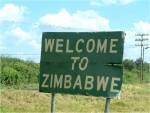Between 2004 and 2009 I visited Zimbabwe a number of times. The first visit exposed me to some of the realities and challenges of a beautiful country that Robert Mugabe and ZANU PF were turning into a nightmare. By my final visit inflation was around 10,000%, unemployment was sky high, and the bread basket of Africa had become a basket case.
I visited because the Diocese of Southwark (where I was the Bishop of Croydon) had longstanding partnership links with the Anglican dioceses in Zimbabwe. Croydon was linked with Central Zimbabwe, and I developed a friendship (based on huge admiration) with the Bishop, Ishmael Mukuwanda. I posted on this blog many times from and on Zimbabwe – simply put it in the search box and loads should come up.

But, to what might the country be going forward? This is the hard question. It is easy to celebrate the end of Mugabe’s reign; but, what will now follow? Freedom from is not the hard bit; freedom to or for demands far more.
Ten years ago I was clear that the key to Zimbabwe’s future had to be the reestablishment of the rule of law – not just any law, but law as internationally recognised. Without the rule of law, nothing could be relied on. And, yet, now, we see the dethronement of Mugabe … but only by his own party. The same party will appoint a new leader, and this leader will continue the rule of ZANU PF. It will take someone brave or reckless to bring democracy back to Zimbabwe; in the meantime, Mugabe’s departure will not change much at all in terms of who is in charge, how they will run the country, and whose interests will be protected.
Clearly, today is for celebrating an ending. But, tomorrow will bring a beginning. And that beginning will probably be a continuing of what has gone before. It is too early to celebrate a new world for the wonderful people of this wonderful country. What we can be sure of, however, that the Anglican Church, with all its fallibilities and fragilities, will keep on plugging away imaginatively and creatively, serving communities and people in quiet, unsung ways, silently tilling the ground for a harvest they believe will one day come.
Advertisements &b; &b;